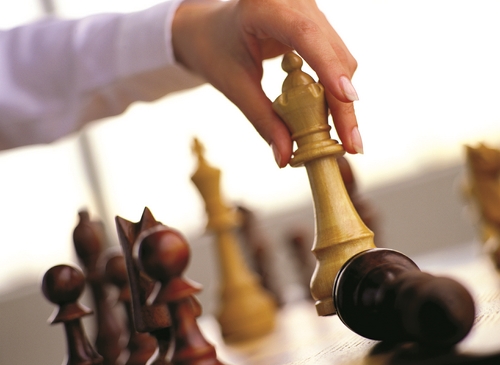Election campaigns now make full use of all available political tools. Our MT reporter speaks to Denis Melyantsov, a political scientist and senior analyst at the Belarusian Institute for Strategic Studies, who tells us of the tricks used by politicians worldwide and of the voters’ reaction to them

It’s important to make the right move in the electoral campaign
There are those who are of the opinion that voters are more predisposed to believe in pre-election promises, even the unrealistic ones, in hard times. As a result, politicians try to appeal to the masses in order to achieve their political goals.
For the politicians, relying on a firm vote is preferable to banking on the strength of the economy to boost their count. Some people use rational critical thinking during an election campaign while others make their decision purely on their opinion of the candidate’s photo just before filling in the form, judging candidates on the basis of their appearance. Analytical voters appear to be in the minority in most countries. The difference is based on how a certain political system functions. The two-party system in the USA ensures that parties act as a filter, preventing extreme personalities from joining the political scene. Non-party candidates are unlikely to be chosen for significant posts. Each country has its own restrictions, the better developed these are, the less the chance a populist politician will succeed.
Should we study a manifesto in detail or should we pay more attention to the candidate’s biography and achievements?
A minority of voters read the candidates’ election pledges, at an estimate, there are no more than about 10-15 percent of voters reading the publicity thoroughly. These are mostly political scientists and analysts. Biographies of the candidates are to be found on flyers, on the TV or in voting stations. Interestingly, when the voters were asked what sort of person they would prefer to win the election, the overwhelming majority preferred candidates with managerial experience, especially if this had been gained in a large company.
What tricks do politicians use to influence voters’ opinions to their advantage?
There are plenty of political technologies and positive PR is among them. With this philosophy, a politician appears in the mass media as often as possible, irrespective of the reason. In line with current thinking, politicians need to appear in public a certain number of times in order to be recognised by the public. However, ‘black’ or ‘dark’ PR also exists, aimed at discrediting the other candidates. On occasion, fake leaflets for a rival candidate are distributed in letterboxes and stuck to car windscreens, with intentional mistakes and provocative information. This causes natural bad feeling amongst politicians.
In many countries, an election can turn into a public spectacle, with flamboyant eccentric candidates included in the voting lists. Could personalities like this appear in our country?
In this respect, Belarusians are conservative and treat elections extremely seriously. Satirical candidates can apply, but they are unlikely to collect the necessary number of signatures or engender trust. It’s not enough to be outrageous; political strength and motivation is the key.
Unusual personalities always arouse great interest however, and, to achieve this, it isn’t always necessary to don a Darth Vader costume, as was recently seen in the Ukraine. The current Polish President, Andrzej Duda, for example, benefited from the distinction between himself and the other candidates. In contrast to his rival Komarowski, he applied unusual psychology, not previously seen in the Polish political sphere. He visited all regions by bus, talking to people informally and treating them to coffee. He created an impact, which piqued people’s interest in his personality.
How would you describe our voters?
Conservatism is their main feature; it’s seen even in their reluctance to vote for female candidates. Men are still preferred, moreover, our voters do not view voting as a right, for most of them it is a duty or habit. Most of the population vote during any election campaign, including regional ones. As a rule, attendance is no less than 70 percent, which is a high turn out compared to other countries.
By Irina Sudas
Rapid-fire question
What do our parties need to do to increase their popularity?
Alexander Lazarev, an entrepreneur:
The parties themselves primarily lack a desire to be popular. Their image should not be perceived through unsanctioned meetings or law violations; actions such as these turn voters away and create mistrust. They need to promote themselves through social actions such as helping others in showing kindness in the community.
Tatiana Radivilina, the Head of the Chausy District Executive Committee’s Department of Ideology, Culture and Youth Affairs:
They probably do work with the community. But if so, this is mostly done in secret and needs to be better publicised. There is a general lack of enthusiasm or at least of publicising their policies and their successes. I think most Belarusians have no idea that some of the politicians even exist.
Valery Guzov, the Deputy Chairman of the Shklov District Executive Committee:
I don’t consider any party to be outstanding or capable of creating a government at the moment. Our existing government has helped us to avoid some of the shocks seen in other parts of the world. Political and economic stability is natural for our country and I abhor it when blood is shed or people have to leave their homes for a better life because of someone’s excessive ambition.
Reporter Irina Mendeleeva asks the residents of Mogilev











